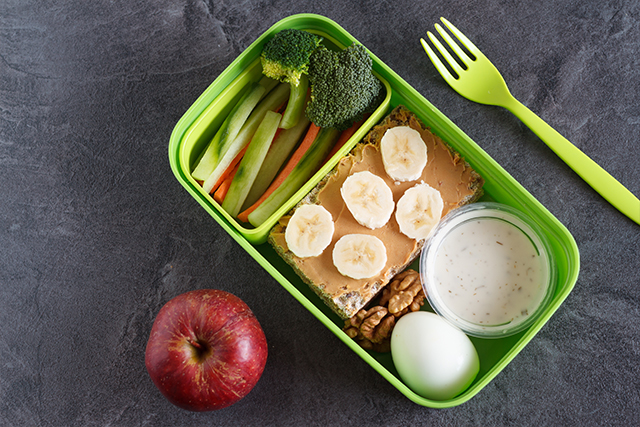Parents are always on the lookout for nutritious and delicious foods to offer to their children. One item that has been a staple in many households for generations is peanut butter. Not only is it a tasty and versatile spread, but it also comes with many health benefits for kids. From providing essential nutrients to promoting heart health and supporting the immune system, peanut butter is a nutritious and delicious food that can help support your child’s growth and development.
Health Benefits of Peanut butter for Kids
Rich in Nutrients: Peanut butter is packed with essential nutrients like protein, fiber, healthy fats, vitamins, and minerals that are important for the growth and development of children.
Good Source of Energy: Peanut butter is a great source of energy for children because it contains healthy fats and carbohydrates that can help them stay active and focused throughout the day.
Promotes Heart Health: Peanut butter contains heart-healthy monounsaturated and polyunsaturated fats that can help reduce the risk of heart disease and lower bad cholesterol levels in children.
Boosts Immunity: Peanut butter is rich in vitamin E, which is an antioxidant that can help strengthen the immune system and protect the body from harmful pathogens.
Helps with Growth and Development: The protein in peanut butter is important for building and repairing tissues, and it can also help with muscle growth and development in children.
May Reduce the Risk of Allergies: Contrary to popular belief, introducing peanut butter to children at a young age may actually reduce their risk of developing peanut allergies.
Peanut butter can play a significant role in helping to address malnutrition in children, especially when used as a part of Ready-to-Use Therapeutic Food (RUTF) or Ready-to-Use Supplementary Food (RUSF) programs. These programs use specially formulated peanut butter-based products to provide a highly nutritious and calorie-dense food source for malnourished children.
RUTF is a high-energy paste that is used to treat severe acute malnutrition in children and is highly effective in providing all the necessary nutrients that a child needs to recover from malnutrition. RUSF is similar to RUTF, but it is used to prevent malnutrition in children. It is a fortified peanut butter-based paste that provides a highly nutritious and calorie-dense food source for children who are at risk of malnutrition.
Both RUTF and RUSF are highly effective in treating and preventing malnutrition in children, and peanut butter is a key ingredient in both of these products. Peanut butter is an excellent source of protein, healthy fats, and essential vitamins and minerals, making it a highly nutritious food source that can help support the growth and development of malnourished children.
Peanut butter is an excellent food for malnutrition and underweight kids as it is packed with nutrients and healthy fats that can help them gain weight in a healthy way. Here are some ways peanut butter can benefit underweight kids:
Calorie-Dense: Peanut butter is calorie-dense, meaning it contains a high amount of calories per serving. This makes it an ideal food for underweight kids who need to consume more calories to gain weight.
Rich in Healthy Fats: Peanut butter contains healthy fats like monounsaturated and polyunsaturated fats that are important for growth and development. These healthy fats can help underweight kids gain weight in a healthy way without increasing their risk of heart disease.
High in Protein: Peanut butter is a good source of protein, which is important for building and repairing tissues and promoting muscle growth. Protein can also help underweight kids gain weight by promoting the growth of lean muscle mass.
Nutrient-Dense: Peanut butter is packed with essential nutrients like vitamins and minerals that are important for growth and development. These nutrients can help underweight kids gain weight in a healthy way and improve their overall health.
Versatile: Peanut butter is a versatile food that can be easily added to a variety of snacks and meals, making it easy to incorporate into a child’s diet.
3 Ways To Sneak It Into Your Child’s Lunch
Peanut Butter and Jelly Sandwich: A classic and delicious way to incorporate peanut butter into your child’s lunch is by making a peanut butter and jelly sandwich. Use whole grain bread and natural peanut butter without added sugars or oils to make it a healthy and filling meal.
Ants on a Log: Ants on a log is a fun and easy snack that kids will love. Simply spread peanut butter on celery sticks and top them with raisins to create a fun and nutritious snack that can be added to your child’s lunchbox.
Peanut Butter and Fruit: Peanut butter pairs well with many different fruits, making it a great addition to any fruit snack. Spread peanut butter onto apple slices, bananas, or even strawberries for a fun and nutritious snack that will keep your child full and satisfied throughout the day.
Peanut butter is not only a delicious food but also a nutritional powerhouse that offers a wide range of health benefits for kids. From promoting healthy growth and development to boosting the immune system, peanut butter is an excellent source of protein, healthy fats, vitamins, and minerals that are vital for kids’ overall health and well-being. By incorporating peanut butter into your child’s diet, you can help support their physical and cognitive development and set them up for a healthy and happy life.

